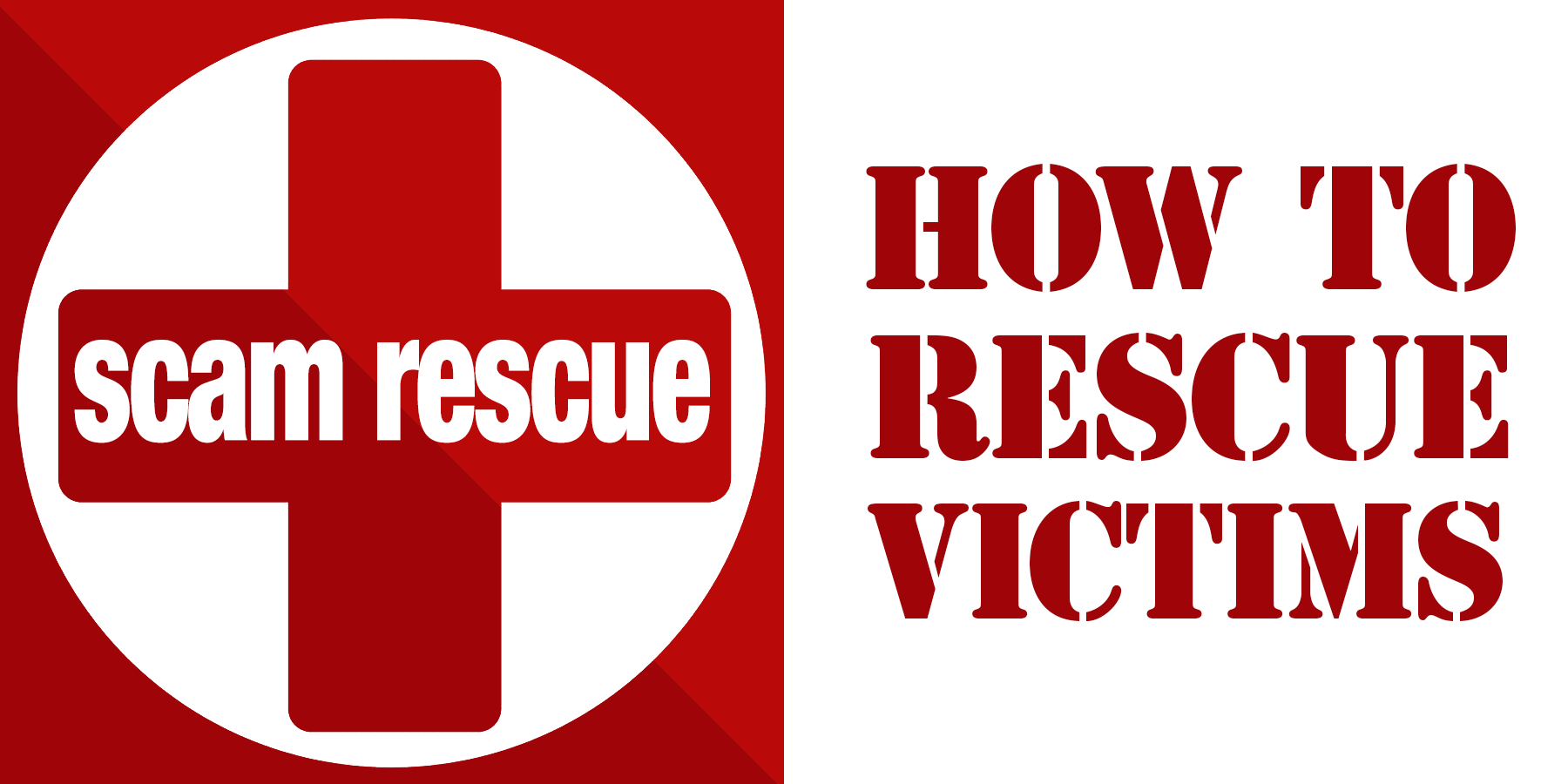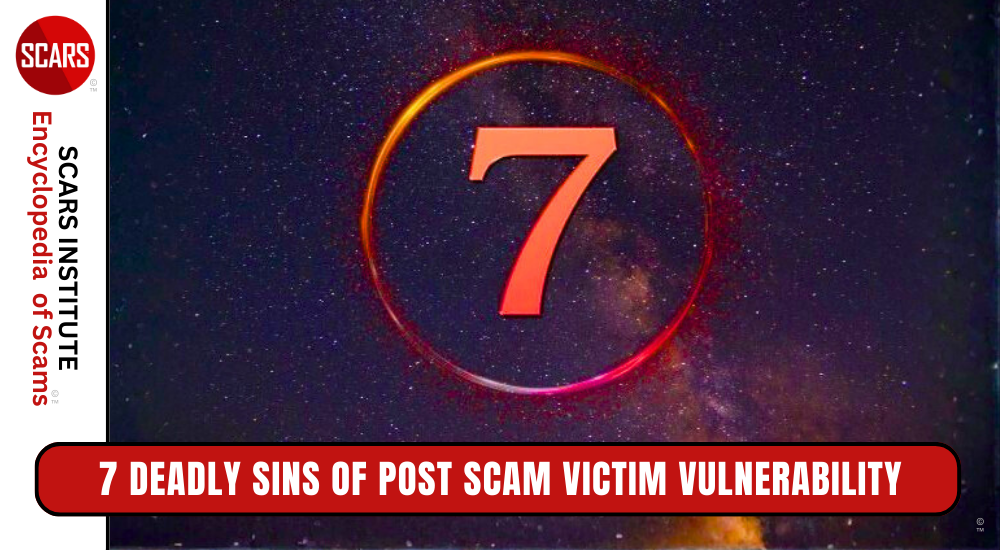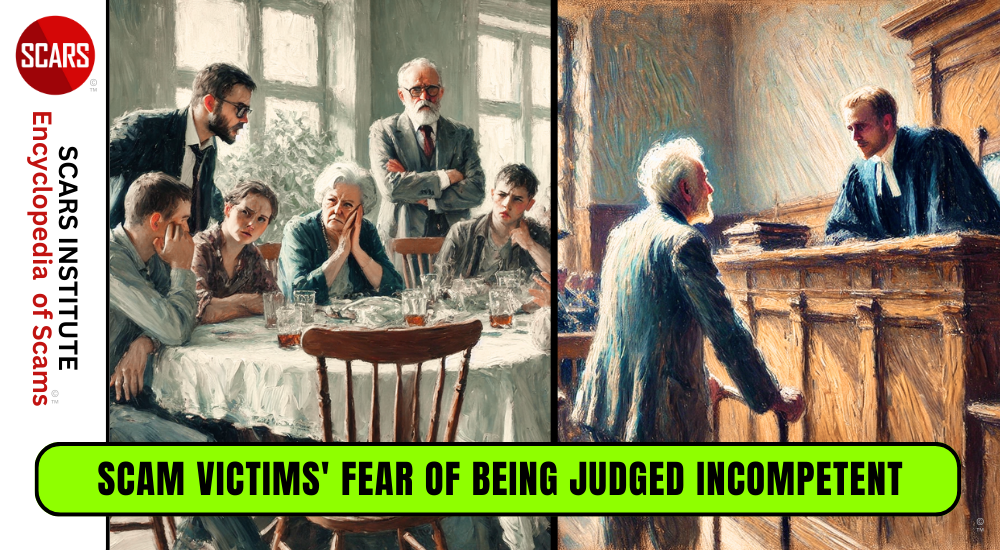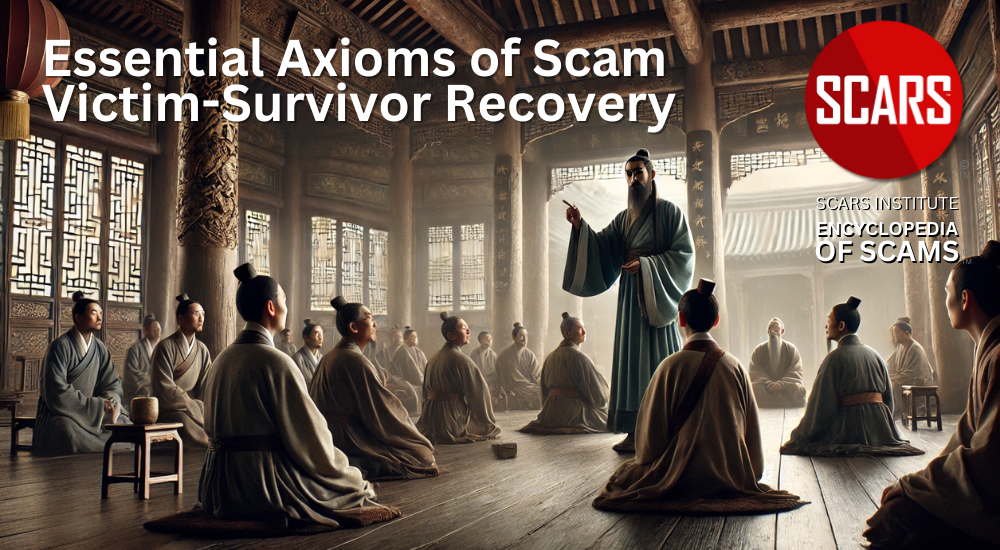
SCARS Institute’s Encyclopedia of Scams™ Published Continuously for 25 Years

Saving Scammers’ Current Victims
It Starts With You!
Victims are everywhere!
Scammers are everywhere!
When you find a scammer profile you will see people commenting or friending that profile. These are men or women who are believing that the face in the photo is real. These are either already victims (and may just not know it yet) or are just waiting to be scammed.
You can do something about this!
It is very simple! It is just about taking personal responsibility for the safety of others and rescuing them from scammers.
This procedure really applies to victims on Facebook, but can be applied to any social media, dating, or other website too!
How This Process Works?
When you see a potential victim on what you believe to be a scammers profile:
- First make sure that the profile IS A SCAMMER! Remember, you are making a criminal accusation against that person. If you do not feel you are sure, then back off – this applies to reporting scammers too. If you have questions, ask an anti-scam professional, a SCARS Member, or an RSN/SCARS Employee.
- Observe the comments and interactions of the person you believe needs help. See what they are saying or commenting. If you see they appear to be actively engaged with the profile’s identity or if you can see if they are a “Friend” of that profile – then take action. This will help you identify their risk, and also how deeply they believe.
Remember to look at the victim from the perspective of your own experience. How would YOU have reacted if some stranger came up to you and told you that your amazing online boyfriend or girlfriend was fake and a scammer? This will be a shock and they may not believe you.
You can take two basic actions:
a) Leave a comment on the profile posts that “This profile is suspected of being fake and used by an online scammer” (translate as appropriate). Be careful not to do to many of these a day, or Facebook will come after you for spamming. You may not want to identify yourself to the scammer in this way.
b) Send a message directly to the victim. Tell them the same thing: “The profile you have been commenting on (or have friended) – <NAME> – is suspected of being fake and used by an online scammer. I just wanted you to know so that you would not be harmed!”
Only explain more if they ask you to explain. Otherwise drop the bomb and leave them alone. You are planting doubt – so even if they do not believe you immediately, if they see red flags they will recognize them. In the end, they are an adult and will make their own decisions.
If the scammer is known – such as a well known stolen face – you can add a link to any anti-scam page or website that shows that face confirming scammer use. Just remember that the scammer will spin a story to explain everything, and many victims will accept that story. You only get ONE opportunity the help a victim – you drop the news and move on, otherwise your own account with Facebook can be at risk.
NOTE: This is a form of an intervention process – but not the process for family members or real friends of the prospective victim. Please refer to our Family Intervention Guide for that process.
Sometimes when you try to help a person they do not react well.
That is why we provide this procedure so that you can use the phrasing we use. The words that you say can make all the difference in the world. However, some will react with hostility because you are destroying the intricate fantasy world they are living in right now.
Do Not Argue – Do Not Try To Force The Idea On Them!
But there is another way too.
If you get a seriously negative reaction. If on their Facebook profile use the REPORT (to Facebook) option to report them to Facebook.
You are not reporting them as a scammer. You are reporting them as a person at risk.
- In their profile, you can report the profile (her/him):
- You will see an option “She may be in danger of hurting herself/himself” then you can choose to offer her your help.
This will do a few things:
- It will record your concern about her, and she will get a formal Facebook message that you are offering to help her.
- It puts FB on notice that she needs help! Meaning that they can more closely monitor that person.
When you encounter a victim that is difficult and does not want to believe you, but asks for more information, you can try the following:
- Share our main RSN Facebook page (www.facebook.com/SCARS.Victims.Support.And.Recoveryand) let them know this is what we do – we rescue victims from scammers. You can also refer them to the RSN Website at: www.RomanceScamsNow.com
- Share the SCARS website – www.AgainstScams.org – explain that this organization only wants to help people avoid scams.
- If they still refuse you can always say “If you do not want to believe me that is your choice, just please be careful” and walk away.
You can’t save people that don’t want to be saved.
So never act aggressively, just tell them and leave them alone – DO NOT ARGUE with them.
If you follow this process you can help save people from the fate you had!
We wish you the best of luck!
RSN Team
RomanceScamsNow.com – Scam Avoidance Education and Victims’ Assistance & Support Division
Society of Citizens Against Romance Scams [SCARS]
Miami Florida U.S.A.
Copyright © 2015-2018 Society of Citizens Against Romance Scams Inc.
-/ 30 /-
What do you think about this?
Please share your thoughts in a comment below!
LEAVE A COMMENT?
Recent Comments
On Other Articles
- Arwyn Lautenschlager on Love Bombing And How Romance Scam Victims Are Forced To Feel: “I was love bombed to the point that I would do just about anything for the scammer(s). I was told…” Feb 11, 14:24
- on Dani Daniels (Kira Lee Orsag): Another Scammer’s Favorite: “You provide a valuable service! I wish more people knew about it!” Feb 10, 15:05
- on Danielle Delaunay/Danielle Genevieve – Stolen Identity/Stolen Photos – Impersonation Victim UPDATED 2024: “We highly recommend that you simply turn away form the scam and scammers, and focus on the development of a…” Feb 4, 19:47
- on The Art Of Deception: The Fundamental Principals Of Successful Deceptions – 2024: “I experienced many of the deceptive tactics that romance scammers use. I was told various stories of hardship and why…” Feb 4, 15:27
- on Danielle Delaunay/Danielle Genevieve – Stolen Identity/Stolen Photos – Impersonation Victim UPDATED 2024: “Yes, I’m in that exact situation also. “Danielle” has seriously scammed me for 3 years now. “She” (he) doesn’t know…” Feb 4, 14:58
- on An Essay on Justice and Money Recovery – 2026: “you are so right I accidentally clicked on online justice I signed an agreement for 12k upfront but cd only…” Feb 3, 08:16
- on The SCARS Institute Top 50 Celebrity Impersonation Scams – 2025: “Quora has had visits from scammers pretending to be Keanu Reeves and Paul McCartney in 2025 and 2026.” Jan 27, 17:45
- on Scam Victims Should Limit Their Exposure To Scam News & Scammer Photos: “I used to look at scammers photos all the time; however, I don’t feel the need to do it anymore.…” Jan 26, 23:19
- on After A Scam, No One Can Tell You How You Will React: “This article was very informative, my scams happened 5 years ago; however, l do remember several of those emotions and/or…” Jan 23, 17:17
- on Situational Awareness and How Trauma Makes Scam Victims Less Safe – 2024: “I need to be more observant and I am practicing situational awareness. I’m saving this article to remind me of…” Jan 21, 22:55
ARTICLE META
Important Information for New Scam Victims
- Please visit www.ScamVictimsSupport.org – a SCARS Website for New Scam Victims & Sextortion Victims
- Enroll in FREE SCARS Scam Survivor’s School now at www.SCARSeducation.org
- Please visit www.ScamPsychology.org – to more fully understand the psychological concepts involved in scams and scam victim recovery
If you are looking for local trauma counselors please visit counseling.AgainstScams.org or join SCARS for our counseling/therapy benefit: membership.AgainstScams.org
If you need to speak with someone now, you can dial 988 or find phone numbers for crisis hotlines all around the world here: www.opencounseling.com/suicide-hotlines
A Note About Labeling!
We often use the term ‘scam victim’ in our articles, but this is a convenience to help those searching for information in search engines like Google. It is just a convenience and has no deeper meaning. If you have come through such an experience, YOU are a Survivor! It was not your fault. You are not alone! Axios!
A Question of Trust
At the SCARS Institute, we invite you to do your own research on the topics we speak about and publish, Our team investigates the subject being discussed, especially when it comes to understanding the scam victims-survivors experience. You can do Google searches but in many cases, you will have to wade through scientific papers and studies. However, remember that biases and perspectives matter and influence the outcome. Regardless, we encourage you to explore these topics as thoroughly as you can for your own awareness.
Statement About Victim Blaming
SCARS Institute articles examine different aspects of the scam victim experience, as well as those who may have been secondary victims. This work focuses on understanding victimization through the science of victimology, including common psychological and behavioral responses. The purpose is to help victims and survivors understand why these crimes occurred, reduce shame and self-blame, strengthen recovery programs and victim opportunities, and lower the risk of future victimization.
At times, these discussions may sound uncomfortable, overwhelming, or may be mistaken for blame. They are not. Scam victims are never blamed. Our goal is to explain the mechanisms of deception and the human responses that scammers exploit, and the processes that occur after the scam ends, so victims can better understand what happened to them and why it felt convincing at the time, and what the path looks like going forward.
Articles that address the psychology, neurology, physiology, and other characteristics of scams and the victim experience recognize that all people share cognitive and emotional traits that can be manipulated under the right conditions. These characteristics are not flaws. They are normal human functions that criminals deliberately exploit. Victims typically have little awareness of these mechanisms while a scam is unfolding and a very limited ability to control them. Awareness often comes only after the harm has occurred.
By explaining these processes, these articles help victims make sense of their experiences, understand common post-scam reactions, and identify ways to protect themselves moving forward. This knowledge supports recovery by replacing confusion and self-blame with clarity, context, and self-compassion.
Additional educational material on these topics is available at ScamPsychology.org – ScamsNOW.com and other SCARS Institute websites.
Psychology Disclaimer:
All articles about psychology and the human brain on this website are for information & education only
The information provided in this article is intended for educational and self-help purposes only and should not be construed as a substitute for professional therapy or counseling.
While any self-help techniques outlined herein may be beneficial for scam victims seeking to recover from their experience and move towards recovery, it is important to consult with a qualified mental health professional before initiating any course of action. Each individual’s experience and needs are unique, and what works for one person may not be suitable for another.
Additionally, any approach may not be appropriate for individuals with certain pre-existing mental health conditions or trauma histories. It is advisable to seek guidance from a licensed therapist or counselor who can provide personalized support, guidance, and treatment tailored to your specific needs.
If you are experiencing significant distress or emotional difficulties related to a scam or other traumatic event, please consult your doctor or mental health provider for appropriate care and support.
Also read our SCARS Institute Statement about Professional Care for Scam Victims – click here to go to our ScamsNOW.com website.









![Financial Recovery - Avoid Money Triggers - Perspective on Money for Scam Victims - 2023 [UPDATED 2025] Financial Recovery Money Triggers Financial Recovery - Avoid Money Triggers - Perspective on Money for Scam Victims - 2023 [UPDAYED 2025] - on the SCARS Institute RomanceScamsNOW.com - the Encyclopedia of Scams™](https://romancescamsnow.com/wp-content/uploads/2025/06/Financial-Recovery-Money-Triggers.png)
![Why People Blame Scam Victims? Stop Scam Victim Blaming - [UPDATED 2025] Why People Blame Scam Victims 2025 Why People Blame Scam Victims? Stop Scam Victim Blaming - [UPDATED 2025] - on the SCARS Institute RomanceScamsNOW.com - the Encyclopedia of Scams™](https://romancescamsnow.com/wp-content/uploads/2021/11/Why-People-Blame-Scam-Victims-2025.png)





Thank you for your comment. You may receive an email to follow up. We never share your data with marketers.